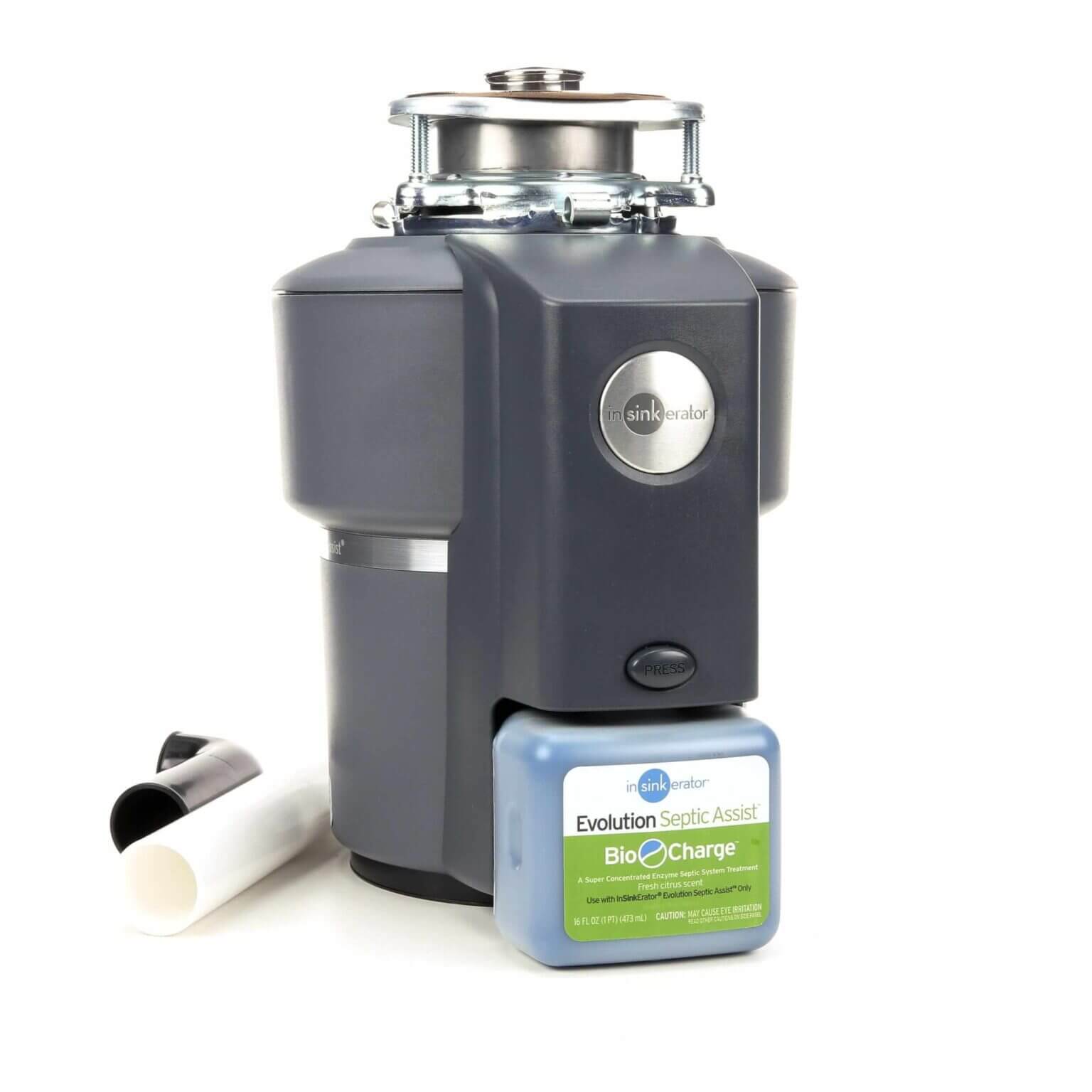
Should You Use a Garbage Disposal With Your Septic System?
In general, we do not recommend using a garbage disposal with your septic system. While they can be a convenient way to dispose of food waste, they can also put a strain on your septic system and lead to problems like clogging, backups, or even system failure.
Why We Don't Recommend Garbage Disposals with Septic Systems:
Septic systems are designed to treat and filter wastewater from your home. They rely on natural bacteria to break down solid waste over time. While food waste can break down in a septic system, it does so more slowly than other types of waste, like human waste or toilet paper. This means that food waste can accumulate in your septic tank and eventually cause clogs or other problems.
Dos and Don'ts for Garbage Disposal Use with a Septic System:
If you do decide to use a garbage disposal with your septic system, it's important to follow these dos and don'ts:
Dos:
- Run cold water while using the disposal to help move waste through your pipes. Hot water can melt fats and grease, causing them to accumulate in your pipes and eventually clog them.
- Use the disposal regularly to prevent buildup of food waste and keep your pipes clear.
- Clean the disposal regularly to prevent buildup of grease and debris.
Don'ts:
- Dispose of items like fats, oils, grease, bones, and fibrous vegetables like celery, as these can cause clogs and damage your septic system over time.
- Overload the disposal with too much waste at once, as this can also cause clogs.
- Use hot water when running the disposal, as this can cause fats and grease to accumulate in your pipes and eventually clog them.
What Not to Put in Your Garbage Disposal:
- Fats, oils, and grease
- Bones and hard materials
- Fibrous vegetables like celery or artichokes
- Eggshells
- Coffee grounds
- Pasta, rice, and other starchy foods
- Septic-Safe Garbage Disposals:
If you do decide to use a garbage disposal with your septic system, it's important to choose a septic-safe model. Septic-safe garbage disposals are designed to work specifically with septic systems. They use enzymes or other additives to help break down food waste and promote the growth of bacteria in the septic tank. Some septic-safe disposals also have larger grinding chambers and slower motor speeds to prevent clogs and other issues in your septic system. These disposals are typically equipped with a bio-charge injection system that injects enzymes and microorganisms into the septic tank to help break down food waste.
Benefits of septic-safe garbage disposals include:
- Reduced strain on your septic system, potentially leading to a longer lifespan and fewer problems.
- Convenience and ease of use for disposing of food waste.
- Potential savings on garbage disposal fees for households that pay for curbside pickup.
Things to be aware of with septic-safe garbage disposals:
- They still need to be used responsibly to avoid damaging your septic system.
- They may be more expensive than traditional garbage disposals.
- They may require professional installation or modification to your plumbing system.
Alternatives to Garbage Disposals:
If you're looking for more sustainable and eco-friendly options, consider these alternatives to garbage disposals:
- Composting: Turn food waste into nutrient-rich soil for your garden.
- Reducing food waste: Be mindful of the types of food you buy and the portions you prepare to reduce the amount of waste you generate.
Conclusion:
While garbage disposals can be a convenient way to dispose of food waste, they may not be the best choice for your septic system. If you do decide to use a garbage disposal, choose a septic-safe model and use it responsibly to avoid damage to your septic
